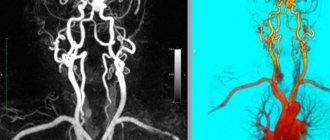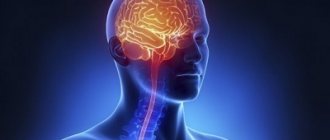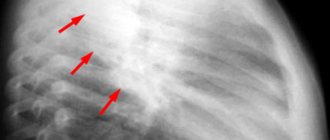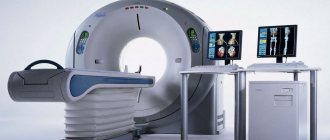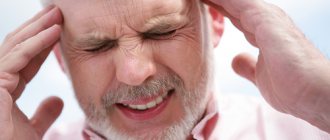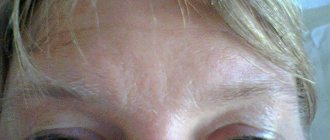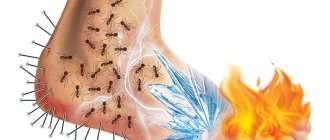Anorexia nervosa is the scourge of our time
Every normal person strives to look well-groomed and have a slim figure.
But excessive enthusiasm, leading to strict diets and refusal to eat, poses a direct threat to health. The problem comes to the point that a person cannot live a normal life, all thoughts are only about losing the “extra” grams of the body, although an emaciated creature is reflected in the mirror. And if the desire to lose weight overshadows other thoughts, worries more than other important things, then there is a disease - anorexia nervosa, the symptoms of which require careful study and treatment. This is not one specific deviation, but a complex of disorders in human eating behavior, which include:
- fear of being overweight;
- failure to maintain optimal body weight;
- abnormal perception of one's own body.
A terrible fear of becoming fat, a growing aversion to food lead to the fact that only thoughts about the next meal lead to tension. Over time, almost any type of food becomes an object of danger. All the time - free and not free - will be occupied with the search for rigid ways of eating, the desire to get rid of the minimum dose of food in the body.
Diet
Nutrition for this pathology helps to improve the functions of organs and systems. Weight gain occurs a little later. At first, the diet should contain a small amount of calories. For anorexia, treatment and nutrition are usually provided in a hospital. If the patient's condition is serious, he is prescribed bed rest, administered glucose and drugs to suppress the gag reflex. When the state of health stabilizes, the person is given juices, then liquid products (fruit and berry purees, decoctions). In order not to overload the gastrointestinal tract, food should be taken 6 times a day in small doses and drink enough water. Then they switch to a vegetarian menu. Low-fat dairy products are allowed. This regime is maintained for 10 days. Then small portions of low-fat boiled fish, poultry, caviar and meat are introduced, as well as herbs, vegetables and steamed omelets, fruit and berry jelly. For anorexia, treatment consists of taking vitamin complexes that help speed up the patient's recovery.
Anorexia nervosa: causes
Factors that can trigger anorexia nervosa include the following.
- Genetic predisposition. Science has established the presence in the human body of a gene that causes a tendency to develop symptoms of the disease in question. Its activity can be affected by both emotional influences (stress, apathy, episodes of depression) and physical influences (diets containing an amount of nutrients insufficient for the normal functioning of the body and unbalanced loads on the body). The presence in the family of carriers of anorexia, people prone to drinking alcohol or drugs is a catalyst for the progressive condition of the disease.
- Psychological violations of personality integrity. The reasons may include a biased assessment of oneself and one’s capabilities, self-aggression, excessive perfectionism and susceptibility to public opinion. Those susceptible to the disease are characterized by mental lability, expressed in a weak form of hysteria and instability of the emotional background.
- Physiological abnormalities (excess weight, body defects, early onset of menstruation in women).
- The impact of society and the propaganda of dystrophy dictated by the media.
Experts identify several reasons that provoke the development of eating disorders. These include biological and psychological factors.
Psychological: a person is overcome by a powerful desire to lose weight in any way, regardless of health status. The problem also arises due to social reasons:
- a social circle in which “thinness” is a cult;
- the desire to be like thin models, show business stars;
- family - a child growing up in a family of alcoholics, among relatives who are obese,
- drug addiction are susceptible to mental disorders.
This category mainly includes teenage girls. Approximately 15% of the total number of people losing weight lead themselves to anorexia and cachexia.
Biological reasons include a malfunction of the endocrine system, disruption of the ligaments and functions of brain cells responsible for eating behavior: serotonin, dopamine, norepinephrine.
A factor provoking anorexia may be professional activity. Thus, actresses, ballerinas, models go on strict diets or completely refuse to eat in order not to lose their jobs.
Anorexia due to nervousness is caused by tragic events, grief, prolonged depression, and stress. If you try to distract yourself from problems and switch your attention to positive things, your psyche will recover as soon as possible.
Anorexia nervosa does not have a single cause. The National Health Service (UK) says most experts believe mental illness is caused by a combination of biological, environmental and psychological factors.
It is believed that some people have personality traits that make them more likely to develop the disease.
Being underweight and not eating properly can have an effect on the brain, increasing the behaviors and obsessive thoughts associated with anorexia nervosa. In other words, being undernourished and underweight can start a cycle of further weight loss and undernutrition.
The following risk factors are associated with anorexia nervosa:
- Excessive obsession with rules.
- Tendency to depression.
- Excessive concern about your weight and shape.
- Excessive worry, doubt and/or fear about your future.
- Perfectionism.
- Having a negative self-image.
- Having feeding problems in early childhood or infancy.
- Presence of anxiety disorders in childhood.
- Adherence to specific cultural/social ideas regarding beauty and health.
- Repression – a person restrains or controls his behavior and expression.
Features of the course of the disease in childhood
In medical practice, there are many cases of the development of eating disorders in minors.
Often such patients suffer from misunderstanding among relatives, coldness and alienation from loved ones. The typical situation that develops in the family of such a child is as follows: an overbearing, controlling mother and a distant father, who takes almost no part in upbringing. Sometimes minor patients with anorexia suffer from disorders of the gastrointestinal tract. At the beginning of the disease, some of them have an increased desire for food.
As for personality traits, such children are prone to stubbornness and excessive conscientiousness. They usually do well at school and try their best to please others.
Eating disorders are more common in girls who, during puberty, experience worries about changes in their body and do not want to become adults.
Unfortunately, for anorexia in children, treatment often begins quite late, when the signs of the disease become noticeable to others. Therefore, parents should be attentive to any changes in the eating behavior of their daughter or son.
What does the disease lead to?
Anorexia nervosa, the symptoms and treatment of which we will study further, leads to deaths and is accompanied by a persistent refusal of one’s own problem. In most cases - approximately 95% of 100% of patients - women, young girls. According to statistics, residents of large cities and megalopolises are more susceptible to the disease.
There are two types of disease:
- Anorexia with restriction is weight loss through calorie restriction, this includes strict diets, fasting days, and hunger.
- Losing weight through cleansing - weight loss due to artificially induced vomiting, taking diuretics, laxatives.
Deviations in eating behavior in men
Oddly enough, the stronger sex is also susceptible to this disease, although to a lesser extent than girls. As a rule, pathology is caused by such reasons as:
- Mental disorders.
- Having excess body weight in childhood.
- Features of the professional sphere (models, athletes, artists).
- Passion for spiritual practices and beliefs, raw food diet, refusal to eat meat or any other products.
The disease occurs in both young men and adults. When this disorder develops, a man believes that he is overweight. However, such a belief is initially incorrect. Individuals interested in various religious teachings say that food is an obstacle to spiritual development or that certain foods are prohibited from being consumed as the main motive for food restrictions. Representatives of the stronger sex, like girls, use various methods to get rid of an imaginary defect in appearance (diet, fasting days). Men who are worried about their problem are not inclined to share negative emotions with relatives and friends. Therefore, loved ones often turn to specialists for help only when the patient’s health and life are already at risk. Deviations in eating behavior negatively affect the patient’s appearance: he looks exhausted, pale, and feels weak.
The man’s character also changes: isolation and symptoms of a schizophrenic disorder appear. With anorexia nervosa, treatment of representatives of the stronger sex, as a rule, is carried out only in a psychiatric clinic. The pathology is caused by certain personal difficulties, so a specialist works with the patient to help cope with mental problems.
Environmental factors
Environmental factors may include hormonal changes that occur during puberty, anxiety, stress, and low self-esteem.
Many experts believe that some young women in Western culture, exposed to numerous media messages that being thin is beautiful, are more likely to develop anorexia nervosa.
However, a study conducted at the University of Granada (Spain) found that the incidence of eating disorders was significantly higher among Muslim adolescents than their Christian peers.
Other environmental factors that some experts believe may contribute to the development of the disease include physical and sexual abuse, problems in family relationships, bullying, stress at school (eg, exams), bereavement, stressful life events (eg, breakup). relationships or dismissal from work).
According to the National Eating Disorders Association, research has found that some people with eating disorders may have imbalances in certain chemicals that control digestion, appetite and hunger. No one knows what consequences this might have - further research is underway to find out.
Experts believe that the tendency to develop eating disorders may be partly determined by a person's genes. In many cases, anorexia nervosa, bulimia nervosa and other eating disorders run in families.
Factors that provoke anorexia
This condition can occur under the influence of such circumstances as:
- Genetic background.
- Problems in relationships with relatives.
- The negative impact of society (the influence of the media, due to which people are convinced that thinness is the ideal of beauty).
- Impaired functioning of organs (due to cancer pathologies, surgical interventions).
- Mental illnesses.
For anorexia, treatment must be timely and qualified. To avoid consequences that pose a threat to life, if signs of illness occur, you should consult a doctor.
What is anorexia nervosa: external signs
Signs of anorexia nervosa appear in connection with mental abnormalities and obsessive thoughts about one’s unattractiveness. It seems to a person that all life’s difficulties and troubles arise due to excess weight and obesity.
Inadequate assessment of reality concerns:
- relations with relatives;
- breaking up with a loved one;
- non-acceptance by society;
- lack of friends and other situations that negatively affect psychological well-being.
Symptoms of the disease include:
- categorical refusal to eat;
- sudden weight loss;
- exhaustion;
- amyotrophy;
- depression;
- sleep disturbance;
- anxiety, frequent mood swings;
- inducing vomiting in an unnatural way;
- taking laxatives;
- desire to lose weight at any cost;
- feeling of fear when gaining weight;
- passion for diets;
- denial by the patient of problems in his mental state.
After not accepting oneself for who one is, a person becomes depressed, severely restricts himself in food, sometimes hiding it from others. For this reason, close relatives cannot understand for a long time why the patient has become apathetic, irritable, and unsociable.
The initial signs of the disease are most often expressed in:
- the patient’s dissatisfaction with his body, a constant feeling of being full and extra pounds of weight;
- rejection of the patient's serious problems;
- a noticeable reduction in portions, eating food while standing;
- sleep disturbance and insomnia;
- depressive states, increased irritability and sensitivity, sometimes aggressiveness;
- phobias get better;
- manic exercise, with an ever-increasing load;
- refusal of various events where food consumption is planned;
- frequent and long visits to the toilet;
- zealous enthusiasm for various strict diets.
When talking about the symptoms of this disease, they often mean anorexia nervosa, since its true form is only the result of the underlying disease. The symptoms of anorexia are very diverse, and many symptoms appear only at a certain stage of the disease.
The first symptoms to look out for are eating symptoms. These include:
- manic desire to lose weight with normal weight or deficiency;
- fatphobia – fear of being fat;
- regular avoidance of food for various reasons;
- fixating thoughts on calories, weight loss, diet;
- fractional meals, a sharp reduction in the number of usual servings;
- chewing food thoroughly and for a long time;
- avoiding activities that involve eating.
Psychological health symptoms are as follows:
- severe apathy, constant depression and depression;
- inattention and distraction;
- low performance;
- insomnia and restless sleep;
- obsessive thoughts about losing weight, fixation on ways to achieve this;
- denial of one’s own appearance, aversion to weakness, dissatisfaction with the results achieved;
- mental instability;
- feeling of one's own uselessness and uselessness;
- rejection of oneself as a sick person, refusal of treatment;
- denial of an active lifestyle.
Other behavioral changes associated with this disease include:
- desire for heavy physical activity, irritation when it is impossible to achieve set goals;
- preference for baggy, loose clothing over any other, believing that in this way their imperfect body will not be noticeable;
- fanatical beliefs, the defense of which causes anger and aggression;
- the desire for introversion, avoidance of mass gatherings, avoidance of any society;
- easy rapprochement with like-minded people.
Physiological manifestations of anorexia symptoms:
- reduction in body weight by 30% of normal;
- general weakness, fainting and dizziness, as a result of a strong decrease in blood pressure and poor circulation;
- growth of vellus hair throughout the body, baldness;
- decreased potency and libido;
- menstrual irregularities, up to complete cessation of menstruation, infertility;
- constant feeling of cold, blueness of the fingertips and nose;
- tendency to fractures, increased bone fragility.
With prolonged refusal of food, other external signs appear, which can be divided into separate categories.
Girls are more susceptible to this disease than men. It is especially pronounced in teenage girls with their youthful maximalism, manifested in almost everything. Here is how this disease manifests itself in the fair sex:
- sallow complexion, thin and dry skin;
- fragility and painful appearance of hair and nails;
- pronounced thinness of the whole body;
- frequent headaches;
- pain in the epigastric region;
- general weakness and malaise;
- insomnia and sleep disorders;
- dysmenorrhea and amenorrhea leading to infertility;
- dystrophy of internal organs;
- coma and death.
In men, this disease occurs slightly differently than in women. However, they are also susceptible to this disease to varying degrees.
The main signs of anorexia in the stronger half of humanity:
- calorie counting;
- passion for diets;
- constant weight control;
- passion for strenuous physical exercise;
- tendency towards alcoholism;
- unreasonable aggressiveness;
- decreased potency and sexual desire.
External signs of this disease in men include:
- excessive thinness of the whole body;
- dry and pale skin;
- hair loss;
- irritability and chronic fatigue;
- organic brain lesions.
Anorexia in children is also very common, especially among girls. However, the child’s psyche is not yet fully formed and is more susceptible to influence than the psyche of an adult. Therefore, by identifying the disease in the early stages, parents can help their children get rid of it once and for all.
Signs indicating the presence of anorexia in children are:
- loss of appetite, refusal to eat, complete aversion to any type of food;
- sunken eyes and bruises under them;
- significant weight loss, dry skin;
- increased irritability, insomnia;
- frequent tantrums;
- decline in academic performance.
In adolescents, this disease is characterized by an obsession with losing weight and dissatisfaction with one’s own figure.
Signs of anorexia in teenagers:
- sudden weight loss;
- adherence to strict diets;
- secrecy and depression;
- insomnia or drowsiness;
- excessive physical activity;
- protruding collarbones and ribs;
- yellowish flaky skin;
- dull, brittle hair;
- swollen joints of the hands and feet;
- puffy face and sunken eyes.
This disease has several stages of development, each of which is characterized by the presence of certain symptoms:
- Dysmorphomanic stage. It is characterized by thoughts about one’s own ugliness and inferiority, aversion to one’s own body due to its apparent fullness. At this stage, a feeling of depression and constant anxiety arises, the need to spend a long time near mirrors appears, the first attempts to refuse food and loss of appetite, the desire for an ideal figure with the help of various strict diets.
- Anorectic stage. The most characteristic symptoms at this stage include: significant weight loss, a state of euphoria, stricter diets, and excessive physical activity. Hypotension and bradycardia, dry skin, and constant chilliness appear. There is a decrease in libido and potency, cessation of the menstrual cycle in women and spermatogenesis in men. Often at this stage, the functioning of the adrenal glands is disrupted, and tolerance to hunger also occurs.
- Cachectic stage. The last stage of anorexia is characterized by the following signs: irreversible degeneration of internal organs, weight loss up to 50% of the original, protein-free swelling, hypokalemia, metabolic disorders. At this stage, the disease is irreversible.
A symptom is something that the patient feels and describes (for example, pain), while a sign can be detected by others (for example, a rash).
According to the University of Maryland Medical Center, severe weight loss is a major symptom of anorexia nervosa. Patients typically try to reduce their weight by severely restricting their food intake.
To speed up weight loss, people may take laxatives and vomit after eating or exercise excessively.
In all cases, the patient insists that she or he is overweight.
Physical signs and symptoms of anorexia nervosa
- Severe weight loss
- Lethargy, fatigue, exhaustion
- Hypotension – blood pressure below normal
- Hypothermia – reduced body temperature
- Stomach upset
- Bloating
- Dry skin
- Cold hands and feet
- Swelling of the arms and legs
- Alopecia – hair loss
- No menstruation (or much less frequent)
- Infertility
- Insomnia
- Osteoporosis – decreased bone density
- Brittle nails
- Arrhythmia – irregular/irregular heart rhythm
- Bad breath and tooth decay – caused by acid in vomit
- Lanugo – fine, fluffy hair that grows all over the body
- More facial hair
- Constipation
- Dizziness
Psychological symptoms and signs of anorexia nervosa
- Patients who are underweight insist that they are overweight.
- Vomiting after eating.
- Patients often weigh themselves, look at themselves in the mirror, and measure their size.
- Obsessive thoughts about food – the person may spend a lot of time reading recipes and cookbooks.
- Patients lie about what they ate.
- They don’t eat, they refuse to eat.
- Lack of emotions.
- Depressed mood.
- Decreased libido (sex drive).
- Memory impairment.
- Self-denial – patients refuse to admit that they have problems or a serious illness.
- Obsessive-compulsive behavior.
- Irritability.
- Excessive physical training.
Most are at a loss as to whether this or that chosen type of weight loss has anything to do with this disease. To do this, you need to answer the following questions:
- Do you suffer from obesity, although others say that everything is fine with you?
- Do you hide the amount of food you consume from strangers and remain silent about your preferences?
- Do you have a fear of gaining weight?
- Are friends and relatives worried about your health, paying attention to your body weight, habits, figure?
- Have you resorted to artificial emptying of the stomach after the next meal? This refers to vomiting, laxatives, and diuretics.
- Do you feel pleasure if you refuse food, artificially cleanse the body through vomiting, laxatives, or exercise to “lose” calories?
- Does your own self-esteem depend on the indicators on the scales and appearance?
How the disease develops
The disease, as we already know, is more common among adolescents, mainly girls. With anorexia, body weight rapidly falls and can be 40-50% below the norm. In order to continuously lose weight, the patient constantly engages in physical exercise, takes diuretics, laxatives, emetics, and very often induces vomiting artificially. As a result, the body is completely exhausted, the person becomes cold and chilly, growth stops, blood pressure drops, a failure in coordination and disorientation occurs.
Changes at the physiological level
- CNS, brain. A person loses memory, concentration, performance in school and work decreases, fatigue, aggression, and anxiety occur.
- Hairline. Due to a lack of microelements, vitamins, minerals, and impaired blood circulation, hair loses its shine, becomes dull, thins, and may fall out completely.
- Cardiac system. The pressure decreases, weak rhythms, arrhythmia, and insufficiency occur.
- Blood. There is an excess of leukocytes, anemia.
- Muscle and bone structure. Muscle tissue atrophies, becomes excessively soft and ruptures, calcium is washed out, which causes brittle bones - osteoporosis, joints become inflamed and swollen.
- Renal system. Urolithiasis develops, insufficiency and inflammation occur, which leads to the stoppage of kidney function.
- Gastrointestinal tract. The patient suffers from flatulence, bloating, constipation, peristalsis is disrupted, which causes hemorrhoids, and during defecation, cracks in the rectum appear, from which blood flows. Gastritis and peptic ulcers develop in the stomach due to thinning of the mucous membrane and metabolic disorders.
- Hormonal system. In women, menstrual cycles stop, which causes a lack of sexual desire and infertility develops.
Worth seeing: What IQ level corresponds to mild mental retardation
And finally, anorexia is something that clearly affects the condition of the skin - it becomes pale, “transparent”, the whole body is covered with wrinkles, dryness, and flaking. Nails peel, bend, and grow poorly.
Anorexia nervosa causes problems in the gastrointestinal tract
Symptoms of Anorexia Nervosa
- strict diets even with a slim figure;
- limited food intake;
- the diet contains only low-calorie foods;
- complete abstinence from foods containing carbohydrates and fats;
- obsessive desire to count the number of calories consumed;
- detailed study of labels and packages;
- getting rid of the contents of the refrigerator, kitchen cabinets, so that God forbid you do not eat too much;
- passion for books about diets, keeping a food diary;
- constant refusal to eat with excuses;
- thoughts about food that accompany you at any time of the day;
- strange behavior: spitting out food, refusing to eat in public catering places.
- Obsessive thoughts about the need to lose weight, even if body weight is within or below normal. The process of realizing these aspirations does not lead to the expected results in emotional terms (feelings of joy, relief, satisfaction and increased self-esteem); the person continues to look for new opportunities to improve his appearance.
- Extreme physical activity, often uncharacteristic for the patient. Sports activities and extreme loads for the body become a panacea for obsessive thoughts about being fat. Patients are in constant motion and exhaust themselves with work without feeling tired. This inevitably leads to disruption of biorhythms, leading to insomnia and hyperactive states. As the disease develops, physical strength declines, the patient becomes inactive and lethargic.
- Constant refusal to eat in the family circle or with other people when using arguments about one’s satiety. It is these moments that can arouse suspicion among loved ones, and they will pay attention to other symptoms.
- Ignoring existing problems, even if there are physical manifestations. Patients deliberately do not pay attention to their body, which signals them about deviations and already real manifestations of anorexia. A persistent reluctance to seek help may be associated with fear of judgment from loved ones or (if anorexia has not reached an advanced stage) with worries about their mental balance.
General symptoms:
- rapid weight loss (the figure can reach up to 30%);
- inadequate assessment of one’s body parameters;
- obesity phobias;
- manic thoughts about food;
- fasting, refusal of proper nutrition and eating in public places;
- adherence to diets; failure to comply with them causes the patient to feel dissatisfied with his volitional qualities;
- voluntary self-isolation, isolation, excessive soul-searching, irritability from any manifestations of communicative actions on the part of other people;
- lack of interest in the opposite sex, decreased libido;
- episodes of fainting and stable states of weakness.
Diagnostic measures
Only a specialist can clearly determine whether a person has this deviation. When a patient seeks medical help, the doctor conducts an examination and talks with him, paying attention to the following criteria:
- Pathological weight loss (the patient’s body weight is fifteen percent below normal levels).
- Weight loss as a result of diets, diuretics and laxatives, and the gag reflex.
- A person's confidence that he is overweight.
- Cessation of growth and development (in children and people of adolescence).
In modern clinics for the treatment of anorexia, the patient undergoes a series of examinations. They include a CT scan of the brain, laboratory tests of biomaterial and examination by specialists (gynecologist, gastroenterologist, general practitioner).
Why do people refuse food?
Basically, people with unstable mental health are susceptible to this disease. If in work, in life, in many areas a person is not able to control processes, then over food, then he can certainly win. At first, after giving up food, you feel light, you can control the size of your clothes, which gives you self-confidence. Even if you are tormented by terrible hunger, the affected consciousness perceives this fact as true pleasure from the fact that few people can do this.
Anorexics try to distract themselves from negative thoughts by fasting. Thinking about strict diets and weight loss, everything else fades into the background and becomes secondary.
Examination and diagnosis
Symptoms of anorexia are a good reason to seek help from a specialist. He will determine the diagnosis and prescribe treatment. Anorexia nervosa is diagnosed using the following methods:
- Conducting a conversation with the patient in the presence of someone close, during which the doctor will identify disorders, determine whether there are symptoms and to what stage they belong.
- Calculation of the degree of correspondence of the patient’s height to his body weight.
- Carrying out biochemical tests.
Patients who are diagnosed with eating disorders early and treated correctly have better outcomes.
Diagnosing eating disorders can be difficult. If your doctor finds a low BMI (body mass index), abnormal heart rhythms, skin changes, gastrointestinal problems, or other signs that indicate anorexia nervosa, he or she may order additional testing to rule out other conditions.
The following medical problems may have similar signs and symptoms associated with eating disorders: diabetes mellitus, Addison's disease, chronic infections, malabsorption syndrome, immunodeficiency, inflammatory bowel disease, cancer and hyperthyroidism.
Diagnostic tests may include:
- Blood tests – complete blood count, electrolyte and protein levels. Blood tests can show whether your kidneys, liver, and thyroid are functioning normally.
- Imaging tests – to detect heart problems, bone fractures and pneumonia.
- Electrocardiogram – to detect cardiac abnormalities.
Diagnostic criteria for anorexia nervosa (DSM-5)
- The patient does not want to maintain a body weight that is at least the minimum normal weight for his or her height and age.
- Even if the patient is underweight, he has a strong fear of becoming fat or gaining weight.
- The patient refuses to admit that he has a serious problem with low body weight, or that he has a distorted view of his shape or appearance.
Many doctors believe that these criteria are too strict because they do not include patients who clearly have an eating disorder and need medical attention.
Therapy
To get rid of this dangerous disease, a person needs to take medications prescribed by a doctor. As a rule, a whole range of medications is prescribed. It includes:
- Products that restore the balance of essential substances in the body (for example, Polyamine).
- Drugs to combat depressive disorder (Fevarin, Zoloft).
- Medicines that help normalize gastrointestinal functions (Mezim, Pancreatin).
- Vitamin supplements (Carnitine, cobalamin).
For eating disorders (bulimia, anorexia), treatment includes psychotherapy. During a conversation with a patient, a specialist must first of all convince him that gaining weight is necessary for life. The doctor explains to the patient some important aspects regarding a healthy diet and normal body weight. A psychotherapist helps a person understand what difficulties need to be overcome in order to communicate and work successfully in the future. In addition, specialists use hypnosis techniques.
Relationships with relatives play a major role in the patient’s recovery. It is important to correct problems within the family. This is especially true for the treatment of anorexia in adolescents, since at this age people are especially sensitive. Doctors recommend that parents of patients do not reproach their children, but build trusting relationships with them.
Naturally, the fight against eating disorders includes the use of medications. However, psychotherapeutic techniques are present in modern clinics, and this is justified. Treatment of anorexia in a hospital, which, unfortunately, can rarely be avoided, is associated with a depressed state of the patient and anxiety.
It is important to create a comfortable environment for a person.
Diet and anorexia nervosa - what is it and what is the difference
The erroneous idea of a healthy lifestyle and medical illiteracy sometimes lead to healthy diets being confused with a complete refusal to eat.
When a person diets:
- strives to control weight within normal limits;
- self-esteem of a dieter is based not on food, weight, but on other important points;
- body weight is reduced to improve the condition of the body and appearance;
- The goal of the diet is not only to lose weight, but to maintain a healthy lifestyle.
Anorexia nervosa: what is it?
- patients try to control emotions by fasting, refusing food, or going on strict diets;
- the patient’s self-esteem is based only on body weight and slim figure;
- losing weight is the only way to find happiness and pleasure;
- losing weight in any way, even if it negatively affects your health.
Eating disorders and pregnancy
Since the pathology is accompanied by severe dysfunctions of the body, it may seem that the probability of conception in such a patient is zero. However, sometimes there are situations when the patient finds out that she will soon become a mother. She is unlikely to experience positive emotions about this news, because she will be afraid of gaining weight during pregnancy. As a rule, in such cases, women terminate the pregnancy, but some still refuse the abortion and decide to keep the child.
Sometimes, as a result of therapy, the symptoms of the pathology become less pronounced, but after delivery the girl gets sick again because she is trying to control her body weight. If the patient finds out about conception, she needs to inform the doctor about it. With anorexia, treatment and observation must be constant, and only a specialist deals with this issue. After all, this disorder during pregnancy threatens both mother and child. In such cases, premature delivery and various health problems in the baby often occur. Women with anorexia often suffer from depressive disorder during pregnancy.
Symptoms and treatment of anorexia nervosa
To diagnose the symptoms of anorexia nervosa and treat the disease, the patient’s desire to see a doctor and awareness of the problem are necessary. Typically, exhausted people do not think that they need help, because they are successfully moving towards their goal.
Here relatives play an important role, who from the outside observe the process of sudden weight loss, which negatively affects all systems of the body. They convince the patient to come for diagnostics and check their health status.
At the appointment, the specialist conducts testing to determine mental problems, calculates the body mass index, and sends for blood, urine, hormone tests, an electrocardiogram, and an ultrasound. These indicators provide information about how much the body has suffered from exhaustion.
The main goal is the gradual restoration of body weight and habits of proper and regular eating. This process is preceded by the elimination of the reasons that provoke the desire to lose weight. For this purpose, the patient may be referred to a psychotherapist to work on himself. After rehabilitation, a person often needs psychological help, especially in moments of stress and depression, so that a relapse does not occur.
Considering the fact that this disease concerns not only the state of the body, but also the human psyche, an integrated approach is necessary. The problem is dealt with not only by a psychiatrist, but also by endocrinologists, nutritionists, and psychologists.
Complex therapy includes three stages:
- return to normal weight;
- return to a nutritious and healthy diet;
- changing the perception of yourself and the world around you.
Anorexia nervosa: treatment with medications.
The main task of a specialized specialist is to eliminate the provoking factors that cause an unhealthy attitude towards food. In cases where body weight is 15% or more below normal, hospitalization of the patient is required, as serious consequences for the body are possible.
The following are used as medicines:
- nootropics, neuroleptics - to regulate brain function and normalize mental state;
- sedatives – relieving tension, irritation, anxiety;
- general strengthening – to strengthen human immunity, restore metabolic processes, etc.
The severity and stage of the disease largely determine the methods used in the treatment of anorexia. Anorexia nervosa must be treated in hospitals, under the supervision of highly qualified specialists and experienced psychologists. The patient is prescribed a diet specialized for his condition.
If the patient refuses to eat food on his own, parenteral nutrition is used - all the nutrients the body needs are administered through the venous system. The disease can be treated with medications or antidepressants.
Anorexia nervosa is a disease that primarily affects mental processes in human activity, so the rehabilitation program involves not only a return to good nutrition and restoration of stable weight, but also psychotherapeutic assistance.
It includes both family therapy (help from relatives and immediate circles) and group therapy (meeting people with similar symptoms). Compliance with all conditions prescribed by doctors is an important step towards recovery and return to normal life. Be healthy!
Ideally, treatment should consist of a combination of medications, psychotherapy, family therapy, and nutritional counseling.
Although involving a patient with anorexia in the treatment process is sometimes difficult, his or her participation is important. Cooperation and recognition of the existence of a medical and psychological problem may be fragile. Treatment is often lengthy and patients may experience relapses, especially when they experience periods of stress.
Patients need a comprehensive treatment plan specifically designed to meet their needs. Treatment has the following goals:
- Restoring the patient's weight to normal levels.
- Treatment of emotional problems, including low self-esteem.
- Correcting distorted thinking.
- Helping the patient develop behavioral changes that will last over time.
Psychotherapy
Individual counseling aims to change the patient's thinking (cognitive therapy) and behavior (behavioral therapy).
The patient is taught how to develop healthy attitudes toward eating and body weight, and how to respond effectively to stressful or difficult situations.
Support from family and friends is an important component of a successful and sustainable treatment outcome. Family members should understand what anorexia is and quickly recognize its symptoms and signs. Family therapy has been proven to help patients significantly.
Drug therapy
There is no specific treatment for anorexia nervosa. Your doctor may prescribe medications to control anxiety and obsessive-compulsive disorder, or antidepressants.
Selective serotonin reuptake inhibitors (SSRIs), a type of antidepressant, may be prescribed when a patient's weight is at least 95% of the normal weight for his or her height and age.
Olanzapine is a drug used to treat psychosis. It can be useful in cases where the patient is very concerned about their diet and weight.
Nutrition counseling
The goal of counseling is to help the patient regain a healthy approach to body weight, nutrition, and eating. Sometimes this requires comprehensive education about the role of a balanced diet in maintaining good health.
Hospitalization
In severe cases of weight loss, persistent refusal to eat, or psychiatric emergencies, hospitalization of the patient may be necessary, even compulsory treatment.
Is it possible to cope with the disease at home?
Sometimes people with this pathology do not undergo treatment in a hospital. This is only possible when a person has a mild form of deviation. Treatment of anorexia at home in adults requires the patient to become aware of his problem. Unfortunately, this happens quite rarely. Most individuals deny that they have any disorders. To cope with pathology on your own, you need to have a strong will. Even if a person is not in a hospital setting, it is better for him to still undergo therapy under the supervision of a doctor. It is also advisable to attend group or individual psychotherapy sessions. You should also undergo regular examinations and take all medications prescribed by your doctor.
Anorexia is associated with anxiety. Therefore, for a patient being treated at home, sedatives based on medicinal plants are recommended.
The diet must be agreed with specialists (therapist and nutritionist). Patients with eating disorders are afraid of gaining excess weight during therapy. Therefore, consultation with a doctor regarding the correct choice of products is necessary. Physical activity helps increase your appetite. However, you shouldn't get too carried away with training. Before exercising, you should consult your doctor. In case of anorexia and treatment at home, the support of relatives plays an important role. You need to try to distract the patient from difficult thoughts, choose common hobbies, ways of relaxation.
Complications of anorexia nervosa
Patients who are diagnosed with anorexia at an early stage and who receive proper treatment experience complications much less often.
- Death – Eating disorders have the highest mortality rates of all mental illnesses. Between 5% and 10% of patients with anorexia die within 10 years of developing the disease (18-20% within 20 years).
- Cardiovascular problems – up to 95% of hospitalized patients have a low heart rate. These changes increase the risk of myocardial damage.
- Hematological problems – there is a high risk of developing leukopenia (low white blood cell count) and anemia (low red blood cell count).
- Gastrointestinal problems – intestinal motility slows down significantly if a person is severely malnourished and eats too little. This goes away when they start eating normally.
- Kidney problems – People with anorexia nervosa often suffer from dehydration, which in turn leads to high concentrations of urine. Patients experience polyuria because the kidneys cannot concentrate urine. When the patient's weight returns to normal, the kidneys usually recover.
- Hormonal problems – Some patients with anorexia have low levels of growth hormones, which can lead to stunted growth in adolescents. When the patient begins to eat healthy foods, normal growth is restored.
- Bone fractures – These are much more common in people with anorexia nervosa. Patients whose bones have not fully grown have a significantly increased risk of developing osteopenia (shrinking bone tissue) and bone loss (osteoporosis).



